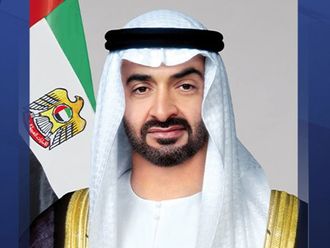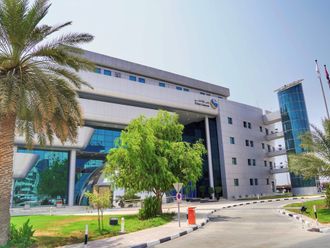Abu Dhabi: Iran said it will not attend the extraordinary summit of the Islamic Inter-Parliamentary Union (IIPU) in Abu Dhabi tomorrow. It is not attending in order to show its opposition to a UAE proposal to adopt parliamentary diplomacy to settle disputes between Muslim nations.
"[We] will announce in a statement that we will not be attending the Abu Dhabi extraordinary summit because this summit has been organised illegally," Kazim Jalali, spokesman for the Parliament's National Security and Foreign Policy Commission from Iran, said on Sunday.
"The UAE because of having the presidency of the union has organised two meetings for the executive committee and this is against the regulations of the Inter-Parliamentary Union," the Islamic Republic of Iran News Network (IRINN) quoted Jalali as saying.
Resolving the issue
The Iranian lawmaker explained that the IIPU's executive committee meeting is held every two years and Inter-Parliamentary Union gathers annually.
"The UAE is trying to change parts of the IIPU's status by holding this extraordinary meeting," he said. "Iran will attend the next IIPU summit in Indonesia next year."
However, Dr Abdul Rahim Al Shaheen, a member of the UAE's delegation to the meeting, told Gulf News Tehran is boycotting the Islamic Inter-Parliamentary Union's meeting in protest over the UAE's proposal to use parliamentary diplomacy as another venue to settle disputes among Muslim countries.
"The Iranians think that the proposal to set up a good offices committee is meant just to resolve the issue of the UAE's islands occupied by Iran," he said.
Dr Al Shaheen said there are more than 240 disputes among Islamic nations on record and any good offices must be approved by the parties involved.
The UAE's proposal that parliamentary diplomacy could provide an alternative avenue to settling disputes among the 51 Muslim states was adopted in October by members of the executive committee of the parliamentary union of the Organisation of Islamic Conference (OIC).
Peaceful solutions
The Abu Dhabi Declar-ation said that the OIC's parliamentary union must cooperate with the committee of governmental experts responsible for submitting proposals to achieve peaceful solutions to all conflicts in the Islamic world.
One issue is the UAE's long-standing dispute with Iran that occupies three islands Abu Mousa and the Greater and Lesser Tunbs since 1971.
The UAE has called for direct negotiations, international arbitration or international courts to settle the dispute, but Iran has always resisted discussing the issue on international forums.
Equal rights
The UAE's speech will be read out by His Highness Shaikh Saud Bin Saqr Al Qasimi, Member of the Supreme Council and Ruler of Ras Al Khaimah, on behalf of President His Highness Shaikh Khalifa Bin Zayed Al Nahyan.
Parliamentary leaders are expected to press for equal rights for peoples of the world to freely acquire and make use of nuclear technology for peaceful purposes and for making the Middle East free of all weapons of mass destruction.










